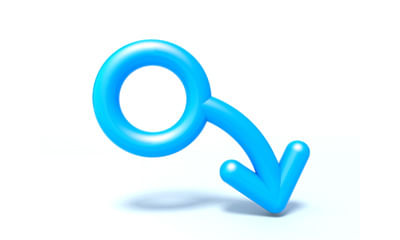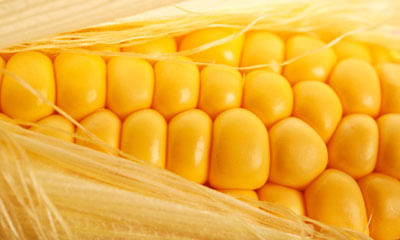Men Growing Breast Tissue
Hello sir, im 23 and penis is stops growing at age of 17 and from childhood I felt stress and mood swings so somebody su ...
Ask Free Question
Hello- estrogen may stimulate breast tissue growth. Men with too much estrogen may develop gynecomastia, a condition which leads to larger breasts. Erectile dysfunction (ed). Men with high levels of estrogen may have difficulty getting or maintaining an erection. It can also cause hypogonadism in men. In ayurveda, hypogonadism usually presents as shandhatva or napunsakta. It means inability to sire a progeny by either. In case your tests shows abnormal hormone levels and you experience the signs and symptoms for the same, don't worry. Ayurvedic vajikaran therapy (which includes, aphrodisiac herbs), and some simple lifestyle and dietary changes can help you recover naturally.
If their is problem of small penis, testicles, weak erections, early ejaculations due to hormonal imbalance or low testo ...
Ask Free Question
First get serum testosterone levels checked from some lab. The fear that your penis looks too small or is too small to satisfy your partner during sex is common. But studies have shown that most men who think their penises are too small actually have normal-sized penises. Similarly, studies suggest that many men have an exaggerated idea of what constitutes "normal" penis size. The length of a non-erect penis doesn't consistently predict length when the penis is erect. If your penis is about 13 cm (5 inches) or longer when erect, it's of normal size. A penis is considered abnormally small only if it measures less than 3 inches (about 7.5 centimeters) when erect, a condition called micropenis. Don't believe the hype and do not be taken away by market gimmicks companies offer many types of nonsurgical penis-enlargement treatments, and often promote them with serious-looking advertisements that include endorsements from "scientific" researchers. Look closely â you'll see that claims of safety and effectiveness haven't been proved. Marketers rely on testimonials, skewed data and questionable before-and-after photos. Dietary supplements don't require approval by the food and drug administration, so manufacturers don't have to prove safety or effectiveness. Penis-enlargement products most advertised penis-enlargement methods are ineffective, and some can cause permanent damage to your penis. Here are some of the most widely promoted products and techniques: pills and lotions. These usually contain vitamins, minerals, herbs or hormones that manufacturers claim enlarge the penis. None of these products has been proved to work, and some may be harmful. Vacuum pumps. Because pumps draw blood into the penis, making it swell, they're sometimes used to treat erectile dysfunction. A vacuum pump can make a penis look larger temporarily. But using one too often or too long can damage elastic tissue in the penis, leading to less firm erections. Exercises. Sometimes called jelqing, these exercises use a hand-over-hand motion to push blood from the base to the head of the penis. Although this technique appears safer than other methods, there's no scientific proof it works, and it can lead to scar formation, pain and disfigurement. Stretching. Stretching involves attaching a stretcher or extender device â also referred to as a penile traction device â to the penis to exert gentle tension. A few things that might actually help although there's no guaranteed safe and effective way to enlarge your penis, there are a few things you can do if you're concerned about your penis size. Communicate with your partner. It may be hard to break old habits or to discuss sexual preferences with your partner. But you'll be glad you did â and you may be surprised at the spark it ignites in your sex life. Get in shape and lose the belly fat. If you're overweight and have a "beer gut, your penis might appear shorter than it is. Regular exercise can make a big difference. Better physical conditioning may not only make you look better, but also can improve strength and endurance during sex. Talk to your doctor or a counselor. Feeling unhappy about the size of your penis is common. A certified counselor, psychologist, psychiatrist or your family doctor can help. Many men feel better with reassurance that they are "normal" or with advice about how to better satisfy their partner without resorting to cosmetic penis enlargement.
I am suffering with gynecomastia it is risky for body because it is from 10 years. ...
Ask Free Question
Hello- Gynecomastia is not physically harmful, but in some cases it may be an indicator of other more serious underlying conditions, such as testicular cancer. The glandular tissue typically grows under the influence of hormonal stimulation and is often tender or painful. Many men find it really tough to cope with the condition and opt for medication or even surgery. Ayurvedic medicine offers complete cure of gynecomastia. It is worth noting that in recent years, medicine has made great progress in this field. So, if you looking for a permanent solution for your male breasts, yes it is possible with Ayurveda. Surgery can be avoided.
If I increase my testosterone level, can I get rid of the gynecomastia? I've it since 3 years. ...
Ask Free Question
Hi, Not only testosterone ,estrogen also one of the reason for gynaecomastia. What causes gynaecomastia? Hormone imbalance: Gynaecomastia can be caused by an imbalance between the sex hormones testosterone and oestrogen. Oestrogen causes breast tissue to grow. While all men produce some oestrogen, they usually have much higher levels of testosterone, which stops the oestrogen from causing breast tissue to grow. If the balance of hormones in the body changes, this can cause a man's breasts to grow. Sometimes, the cause of this imbalance is unknown. Obesity Being very overweight (obese) is a common cause of gynaecomastia – this is because being overweight can increase levels of oestrogen, which can cause breast tissue to grow. If you're overweight you're also more likely to have excess fat that can enlarge the breast tissue. For some people losing weight or doing more exercise can help but this may not always improve the condition. Newborn baby boys Gynaecomastia can affect newborn baby boys, because oestrogen passes through the placenta from the mother to the baby. This is temporary and will disappear a few weeks after the baby is born. Puberty During puberty, boys' hormone levels vary. If the level of testosterone drops, oestrogen can cause breast tissue to grow. Many teenage boys have some degree of breast enlargement. Gynaecomastia at puberty usually clears up as boys get older and their hormone levels become more stable. Older age As men get older, they produce less testosterone. Older men also tend to have more body fat, and this can cause more oestrogen to be produced. These changes in hormone levels can lead to excess breast tissue growth. Other causes Other rare causes of gynaecomastia include: side effects of medicine – such as anti-ulcer drugs or medicine for heart disease illegal drugs – such as cannabis or anabolic steroids drinking too much alcohol a health condition – such as kidney failure or liver disease Klinefelter syndrome (a rare genetic disorder) lumps or infection in the testicles. So once consult a doctor he can advise medication.
I am 18 year old male. I have been growing fat in my chest area since childhood and now I have confirmed it after many r ...
Ask Free Question
Dear Mr. lybrate-user, The best treatment to treat Gynecomastia is surgery, where excess fat is removed which is followed by removal of breast tissue or glands. For best results VASER liposuction can be used to remove the excess fat. This can be done on a daycare basis. Please make an appointment with an experienced Board Certified Plastic Surgeon who can examine you and give you the treatment details. Regards.
How much soya floor can I eat in a day without any side effects .i consume near bout 50-60 gram in a day with milk is it ...
Ask Free Question
Hello, Soy and its products if taken in limitation is considerably safe for males. 20-30 gms of soya in a day should be ideal for consumption. Please do not combine soya with milk as it can hinder the absorption of important nutrients in the milk.
I am a boy of 10 standard and my breast is going big and inside that it has a round hard substance my friends told me th ...
Ask Free Question
Gynaecomastia (sometimes referred to as "man boobs") is a common condition that causes boysâ and menâs breasts to swell and become larger than normal. It is most common in teenage boys and older men. What are the signs of gynaecomastia? Signs vary from a small amount of extra tissue around the nipples to more prominent breasts. It can affect one or both breasts. Sometimes, the breast tissue can be tender or painful, but this isnât always the case. What causes gynaecomastia? Gynaecomastia can have several causes. Hormone imbalance Gynaecomastia can be caused by an imbalance between the sex hormones testosterone and oestrogen. Oestrogen causes breast tissue to grow. While all men produce some oestrogen, they usually have much higher levels of testosterone, which stops the oestrogen from causing breast tissue to grow. If the balance of hormones in the body changes, this can cause a manâs breasts to grow. Sometimes, the cause of this imbalance is unknown. Obesity Some growth in breast tissue is not due to extra body fat from being overweight, so losing weight or doing more exercise may not improve the condition. However, a common reason for gynaecomastia is that being very overweight (obese) can increase levels of oestrogen, which can cause breast tissue to grow. Newborn baby boys Gynaecomastia can affect newborn baby boys, because oestrogen passes through the placenta from the mother to the baby. This is temporary and will disappear a few weeks after the baby is born. Puberty During puberty, boysâ hormone levels vary. If the level of testosterone drops, oestrogen can cause breast tissue to grow. Many teenage boys have some degree of breast enlargement. Gynaecomastia at puberty usually clears up as boys get older and their hormone levels become more stable.
Hello may I know what are the reasons for mensturation stop (excluding pregnancy). ...
Ask Free Question
There are three main causes of primary amenorrhea: chromosomal or genetic abnormalities can cause the ovaries to stop functioning normally. Turner syndrome, a condition caused by a partially or completely missing x chromosome, and androgen insensitivity syndrome, often characterized by high levels of testosterone, are two examples of genetic abnormalities that can delay or disrupt menstruation. 1 hypothalamic or pituitary problems in the brain and physical problems such as problems with reproductive organs can prevent periods from starting. Excessive exercise, eating disorders, extreme physical or psychological stress, or a combination of these factors can delay the onset of menstruation. Secondary amenorrhea can result from various causes, such as: natural causes. Pregnancy is the most common cause. Other natural causes include breastfeeding and menopause. Medications and therapies. Certain birth control pills, injectable contraceptives, and intrauterine devices (iuds) can cause amenorrhea. It can take a few months after stopping birth control for the menstrual cycle to restart and become regular. Some medications, including certain antidepressants and blood pressure medications, can increase the levels of a hormone that prevents ovulation and the menstrual cycle. Chemotherapy and radiation treatments for hematologic cancer (including blood, bone marrow, and lymph nodes) and breast or gynecologic cancer can destroy estrogen-producing cells and eggs in the ovaries, leading to amenorrhea. The resulting amenorrhea may be short-term, especially in younger women. Sometimes scar tissue can build up in the lining of the uterus, preventing the normal shedding of the uterine lining in the menstrual cycle. This scarring sometimes occurs after a dilation and curettage (d&c), a procedure in which tissue is removed from the uterus to diagnose or treat heavy bleeding or to clear the uterine lining after a miscarriage, 4 a cesarean section, or treatment for uterine fibroids. Gynecological conditions. Unbalanced hormone levels are common features of certain conditions that have secondary amenorrhea as a main symptom. These can include: polycystic ovary syndrome (pcos). Pcos occurs when a woman's body produces more androgens (a type of hormone) than normal. High levels of androgens can cause fluid-filled sacs or cysts to grow in the ovaries, interfering with the release of eggs (ovulation). Most women with pcos either have amenorrhea or experience irregular periods, called oligomenorrhea (pronounced ol-i-goh-men-uh-ree-uh). Fragile x-associated primary ovarian insufficiency (fxpoi). The term fxpoi describes a condition in which a woman's ovaries stop functioning before normal menopause, sometimes around age 40. Fxpoi results from certain changes to a gene on the x chromosome. As many as 10% of women who thyroid problems. The thyroid is a small butterfly-shaped gland at the base of the neck, just below the adam's apple. The thyroid produces hormones that control metabolism and play a role in puberty and menstruation. A thyroid gland that is overactive (called hyperthyroidism) or underactive (hypothyroidism) can cause menstrual irregularities, including pituitary tumor. Noncancerous tumors in the pituitary gland in the brain, which regulates the production of hormones that affect many body functions, including metabolism and the reproductive cycle, can interfere with the body's hormonal regulation of menstruation.



